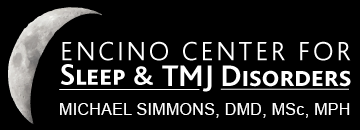Sleep Apnea Deprives You
People with sleep apnea can wake up hundreds of times per night and not even realize it. When you can’t breathe, your body will wake you momentarily to resume airflow. But these moments are so short that you may not be conscious enough to remember them.
They’re not so short that they don’t impact your sleep, though. People with sleep apnea are often consistently deprived of restful sleep, which is an effect that worsens physical and mental health.
Sleep and Mental Health: The Connection
Small disturbances caused by sleep apnea can disturb your body’s ability to enter REM sleep. In this stage of sleep, your brain is highly active and busy at work performing important functions.
Difficulty Concentrating
If you’ve ever pulled an all-nighter or spent the night tossing and turning, you probably know how it feels trying to function the next day. Your ability to concentrate on complex tasks is reduced and taking in new information can be harder than usual.
Chronic sleep deprivation, such as in the case of sleep apnea, can make this your everyday state of mind. This can impact your productivity at work as well. One unfortunate effect of untreated sleep apnea can be unemployment.


Emotion Regulation
During REM sleep, emotion-regulating chemicals that help you remain level throughout the day are released. You may feel more emotional or have trouble harnessing your feelings in the face of hardship during the day.
Memory Trouble
In addition to making learning harder, sleep deprivation also impairs recollection. Your brain isn’t correctly processing the events of the day, so you’re likely to struggle to remember important dates, things people said, and pertinent information.
Anxiety & Depression
The most common mental health disorders associated with sleep apnea are anxiety and depression. Depression can, in turn, affect your ability to sleep and increase your risk for heart disease, further worsening the condition of your health.

Treatment Helps Both Conditions
If you’re feeling constantly fatigued, having trouble concentrating, and experiencing mental health issues, sleep apnea may be the cause. Seeking a sleep test for diagnosis can be the first step on the path to getting effective treatment.
When sleep deprivation is the cause of mental health concerns, treatment for sleep apnea can reduce or eliminate the effects of these disorders. With a CPAP machine or convenient oral appliance, both your sleep apnea and mental health can improve.
Dr. Simmons Can Help You
Dr. Simmons offers effective treatments for sleep apnea that can help you regain control and improve your quality of life. To learn more, contact our office by calling or by filling out our online contact form. We’ll be with you right away to discuss your questions.
